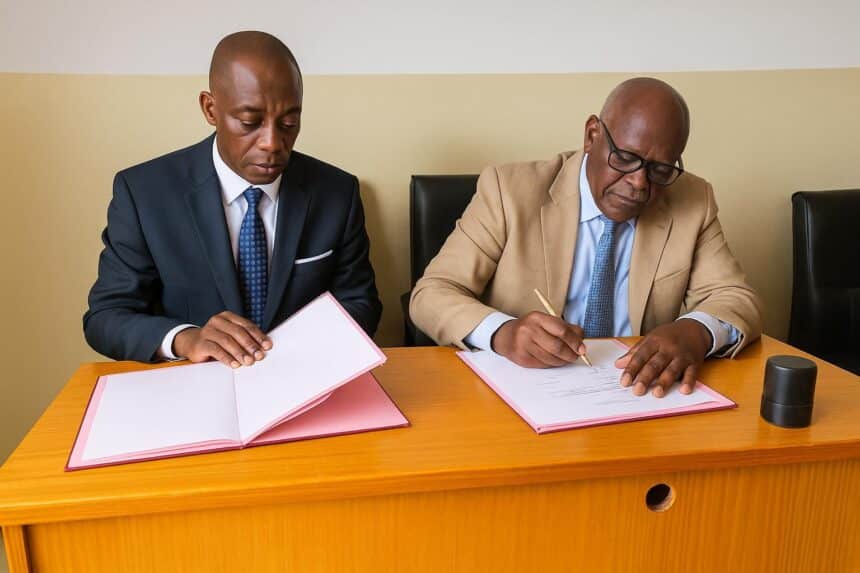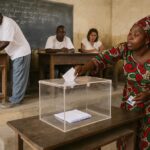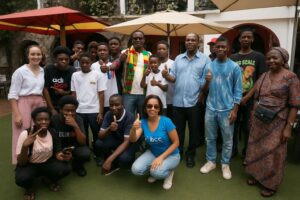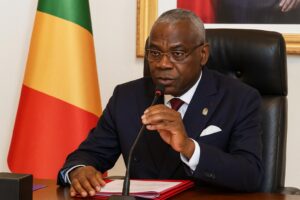Strategic Media-Academia Alliance
In Brazzaville, a handshake between La Nouvelle République and the Institut Supérieur Polytechnique-Université (ISP-U) has opened a fresh chapter in Congo-Brazzaville’s skills agenda.
Signed on 22 August 2025, the indefinite partnership commits the national newspaper to host ISP-U finalists every two months while the university waives fees for newsroom staff pursuing continuous education.
Observers describe the accord as a pragmatic bridge between theory and craft, one that mirrors regional ambitions to link academia and industry without compromising editorial independence.
Founded in 1985, La Nouvelle République serves as an official gazette for several ministerial portfolios, printing 25,000 copies daily and reaching an estimated digital audience of 1.3 million, according to internal analytics shared with the editorial board.
ISP-U, established in 2010, counts 4,200 students across engineering, business and communication faculties and has been ranked among the top ten private institutions by the Congolese Quality Assurance Authority in its 2024 review.
Both entities previously collaborated informally during national elections coverage in 2022 events.
Aligning with National Capacity Goals
The agreement resonates with President Denis Sassou Nguesso’s strategy to modernize public administration through lifelong learning, a priority reiterated during the National Development Plan 2022-2026.
By fostering employability and upskilling civil-service journalists, the partnership aligns with Article 34 of Congo’s Higher Education Act, which encourages institutions to develop professional incubators.
Officials from the Ministry of Communication note that similar compacts elsewhere have improved media standards and reduced graduate underemployment, a chronic issue affecting nearly 45 percent of Congolese youth according to 2024 census estimates.
Sector analysts from the Economic Commission for Central African States argue that newsroom-campus cooperation contributes up to 0.3 percent to GDP growth by smoothing school-to-work transitions and trimming public recruitment costs.
Mutual Benefits and Knowledge Flow
La Nouvelle République gains a pipeline of digitally native interns versed in multimedia production, an asset as the outlet expands its online platforms to reach diaspora audiences.
Editor-in-chief Anasth Wilfrid Mbossa explained that, “the newsroom increasingly demands data visualization, podcast editing and social video—competences that universities cultivate faster than legacy media can”.
Legal scholars point to Law 12-2001 on Freedom of Information, noting that interns exposed early to its provisions are less likely to incur defamation suits, a saving for both state courts and media outlets.
The National Press Council, an independent regulator, has agreed to participate in occasional seminars, ensuring that ethical benchmarks evolve alongside technology.
In return, ISP-U secures valuable feedback from seasoned editors who will co-supervise capstone projects, ensuring curricula remain attuned to evolving regulatory requirements on ethics and fact-checking.
Student Pathways to Employment
For graduating students, the rotation system offers six internships a year, each lasting four weeks, enough to command bylines and build portfolios sought by regional broadcasters.
Eric Makaya Goma, ISP-U’s director, called the pathway “a lifeline in a market where unpaid experience often substitutes for entry-level jobs” while urging corporate partners to adopt similar schemes.
Recent surveys by the International Labour Organization place internship conversion rates at 28 percent in Central Africa; stakeholders hope the current framework will raise that figure above 40 percent within three years.
Alumni networks are expected to amplify the impact. Graduates who secure positions at multinational newswires often channel story leads back to local desks, reinforcing what sociologists describe as “circular knowledge migration”.
Continuous Learning for Journalists
Four journalists from La Nouvelle République will enroll annually in ISP-U’s postgraduate modules on investigative techniques, media law and artificial intelligence, all without tuition, reaffirming the institute’s commitment to open access.
Such reverse mentoring—where students and faculty also learn from practitioners—reflects UNESCO recommendations on sustainable newsroom-university ecosystems published in February 2025.
Funding for the modules is partially underwritten by ISP-U’s Innovation Fund, itself supported by a 2023 African Development Bank grant that prioritizes digital journalism capacity across the continent.
Long-Term Outlook of the Agreement
The memorandum includes a joint evaluation committee tasked with tracking employment rates, publication quality metrics and gender parity among interns, providing data for possible policy scaling.
Analysts expect the model could inspire similar accords between universities and state media in Pointe-Noire and Oyo, reinforcing national cohesion through standardized professional benchmarks.
If the partnership endures, it may serve as soft-power capital for Congo-Brazzaville, showcasing a governance approach that favors dialogue over top-down directives while nurturing a generation of agile communicators.
A mid-term review is slated for 2027, after which the partners may expand cooperation to investigative science reporting, an area flagged by the World Health Organization during recent public-health emergencies.
Regional universities in Gabon and Cameroon have signaled interest in observer status, potentially turning Brazzaville into a hub for media pedagogy in the Central African Monetary Union.
Ultimately, the success of the pact will hinge on reliable internet infrastructure and timely state subsidies, variables that policymakers say are being addressed through the National Broadband Plan.






















